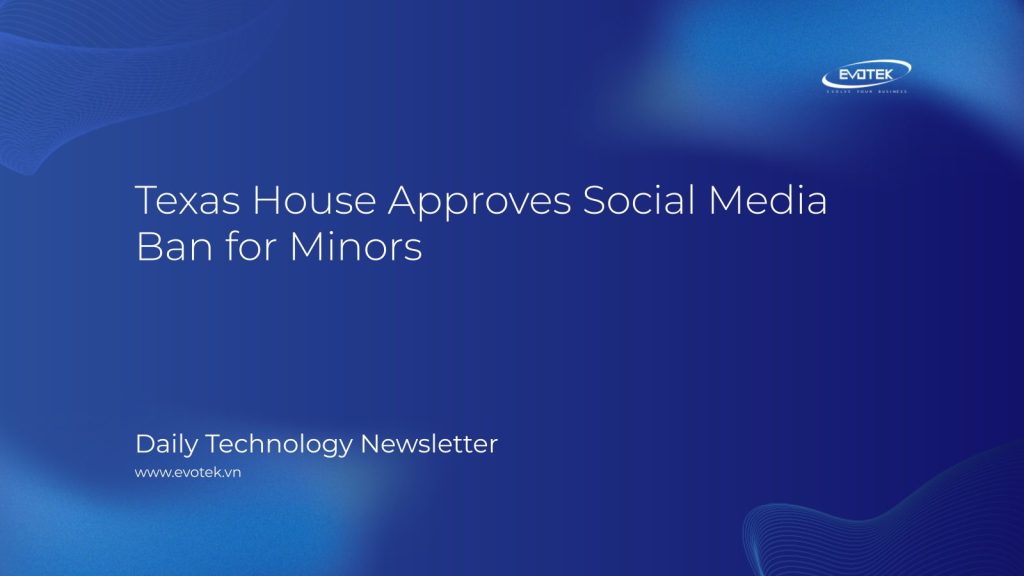AUSTIN, Texas – The Texas House of Representatives has passed House Bill 186, potentially barring Texans under the age of 18 from accessing social media platforms. Authored by State Rep. Jared Patterson (R-Frisco), the bill aims to address concerns regarding youth mental health and online safety.
Patterson has characterized social media as “the most dangerous legal product that children have access to,” citing alarming statistics linking social media use to increased rates of self-harm and suicide among young people.
“Due to constant social media use, self-harm rates have skyrocketed, up 48% for boys and a staggering 188% for young girls,” Patterson stated. “Suicide rates for boys rose 91% and by 67% for girls. In a recent Pew study, 48% of teens admitted that social media harms people their age.”
HB 186 would require social media companies to prevent users under 18 from creating accounts and implement age verification measures, potentially involving the use of transactional data or photo ID uploads.
While the bill allows for anonymous accounts, it mandates that platforms verify users’ ages to ensure compliance. Concerns have been raised regarding data privacy. State Rep. Erin Zwiener (D-Driftwood) expressed worry over the amount of data social media companies already collect and this bill potentially adding to it.
State Rep. Gene Wu (D-Houston) voiced fears that age verification could deter political speech due to potential data breaches. Zwiener stated, “It does concern me the different way a lot of our youth interact with social media and even the way adults interact with social media. I think we should see more regulation of that space, particularly around data, particularly around having some good practices that do protect youth,”
The legislation also empowers parents to request the closure of their children’s existing social media accounts and authorizes the Texas Attorney General’s Office to take action against non-compliant platforms.
Patterson has drawn comparisons between social media and cigarettes, emphasizing the addictive nature and potential long-term harm to children. He referenced a New York Times op-ed by former U.S. Surgeon General Vivek Murthy, highlighting the harmful effects of social media on minors.
Concerns were also raised about the potential impact on student athletes using social media for recruitment and the ability of minors to monetize content. Patterson responded that there is nothing stopping a parent from creating a social media page and highlighting their child’s activities in hopes of obtaining a basketball team slot, or a college scholarship, or anything in between.
The bill will now move to the Senate for consideration. If passed by the Senate and signed into law by Gov. Greg Abbott, the social media ban for minors would take effect on January 1, 2026.
In related news, the Texas House has also approved House Bill 499, requiring social media companies to display warnings about the link between social media use and mental health issues for minors.

 日本語
日本語 한국어
한국어 Tiếng Việt
Tiếng Việt 简体中文
简体中文